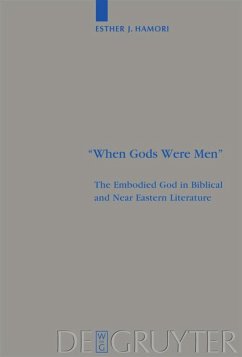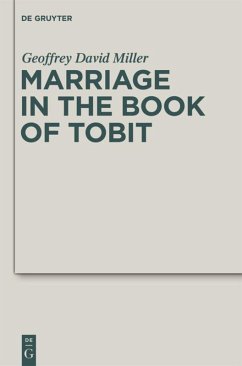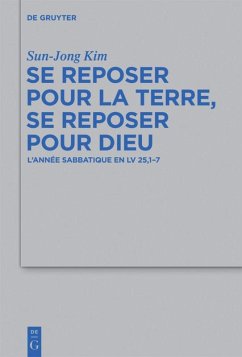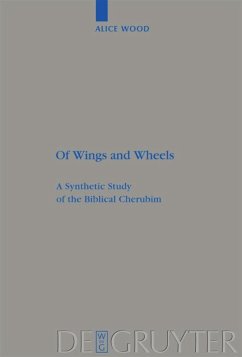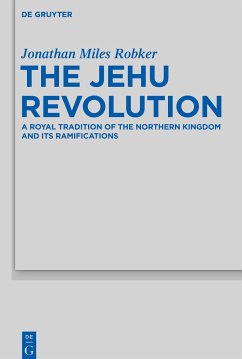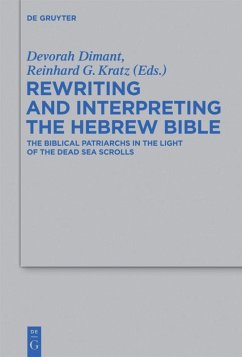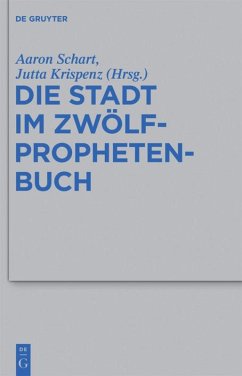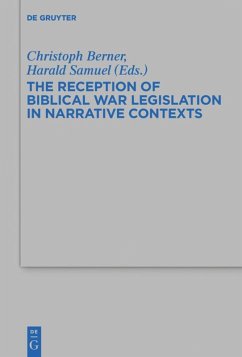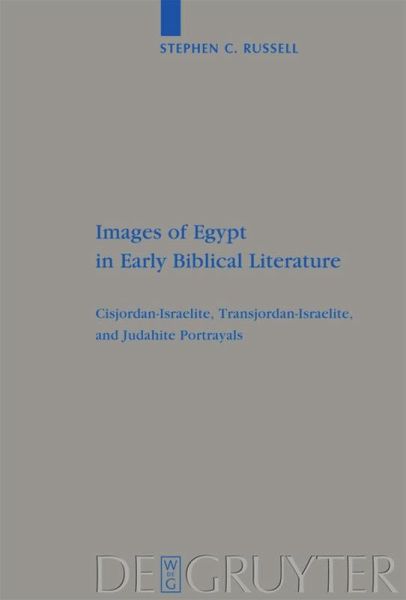
Images of Egypt in Early Biblical Literature
Cisjordan-Israelite, Transjordan-Israelite, and Judahite Portrayals

PAYBACK Punkte
57 °P sammeln!
This book suggests a regional paradigm for understanding the development of the traditions about Egypt and the exodus in the Hebrew Bible. It offers fresh readings of the golden calf stories in 1 Kgs 12:25-33 and Exod 32, the Balaam oracles in Num 22-24, and the Song of the Sea in Exod 15:1b-18 and from these paints a picture of the differing traditions about Egypt that circulated in Cisjordan Israel, Transjordan Israel, and Judah in the 8th century B.C.E. and earlier. In the north, an exodus from Egypt was celebrated in the Bethel calf cult as a journey of Israelites from Egypt to Cisjordan, ...
This book suggests a regional paradigm for understanding the development of the traditions about Egypt and the exodus in the Hebrew Bible. It offers fresh readings of the golden calf stories in 1 Kgs 12:25-33 and Exod 32, the Balaam oracles in Num 22-24, and the Song of the Sea in Exod 15:1b-18 and from these paints a picture of the differing traditions about Egypt that circulated in Cisjordan Israel, Transjordan Israel, and Judah in the 8th century B.C.E. and earlier.
In the north, an exodus from Egypt was celebrated in the Bethel calf cult as a journey of Israelites from Egypt to Cisjordan, without a detour eastward to Sinai. This exodus was envisioned in military terms as suggested by the nature of the polemic in Exod 32, and the attribution of the exodus to the warrior Yahweh, Israel's own deity. In the east, a tradition of deliverance from Egypt was celebrated, rather than the idea of a journey, and it was credited to El. In the south, Egypt was recognized as a majorenemy, whom Yahweh had defeated, but the traditions there were not formulated in terms of an exodus.
While acknowledging the reshaping of these traditions in response to the exile, Images of Egypt argues that they originated in the pre-exilic period and relate to Syro-Palestinian history as it is otherwise known.
In the north, an exodus from Egypt was celebrated in the Bethel calf cult as a journey of Israelites from Egypt to Cisjordan, without a detour eastward to Sinai. This exodus was envisioned in military terms as suggested by the nature of the polemic in Exod 32, and the attribution of the exodus to the warrior Yahweh, Israel's own deity. In the east, a tradition of deliverance from Egypt was celebrated, rather than the idea of a journey, and it was credited to El. In the south, Egypt was recognized as a majorenemy, whom Yahweh had defeated, but the traditions there were not formulated in terms of an exodus.
While acknowledging the reshaping of these traditions in response to the exile, Images of Egypt argues that they originated in the pre-exilic period and relate to Syro-Palestinian history as it is otherwise known.






